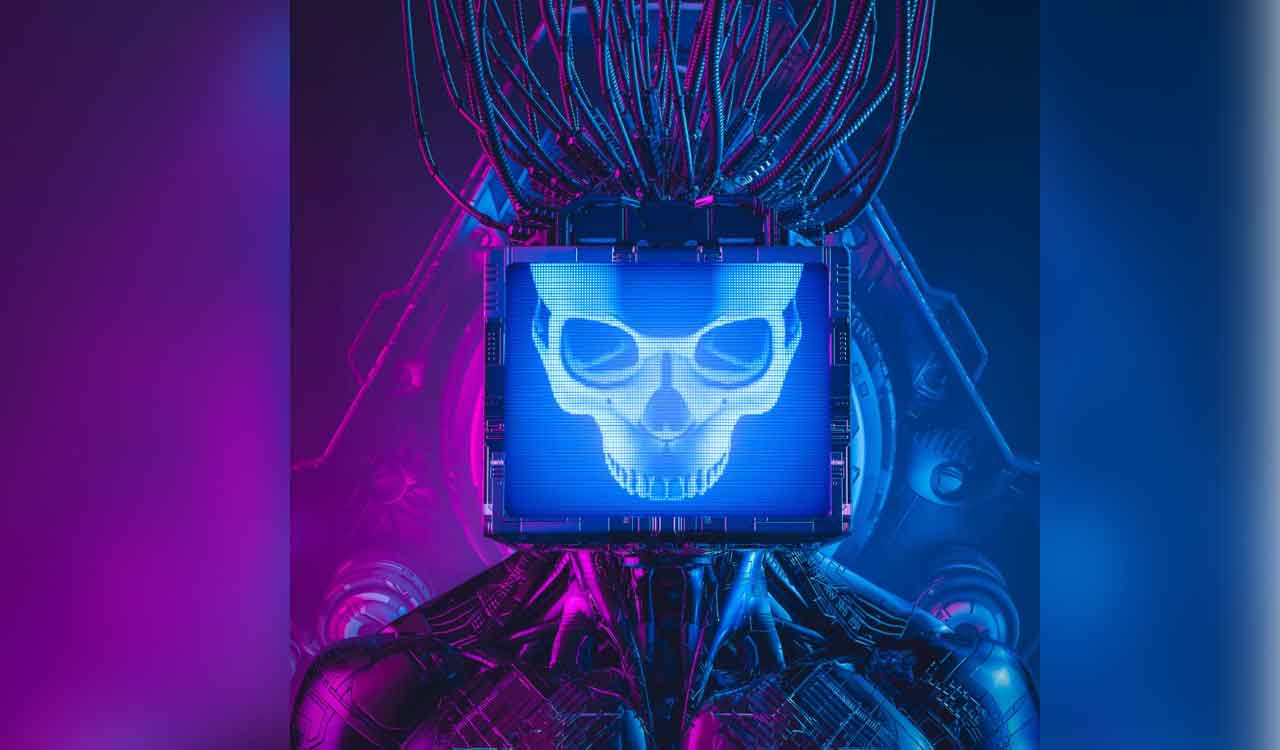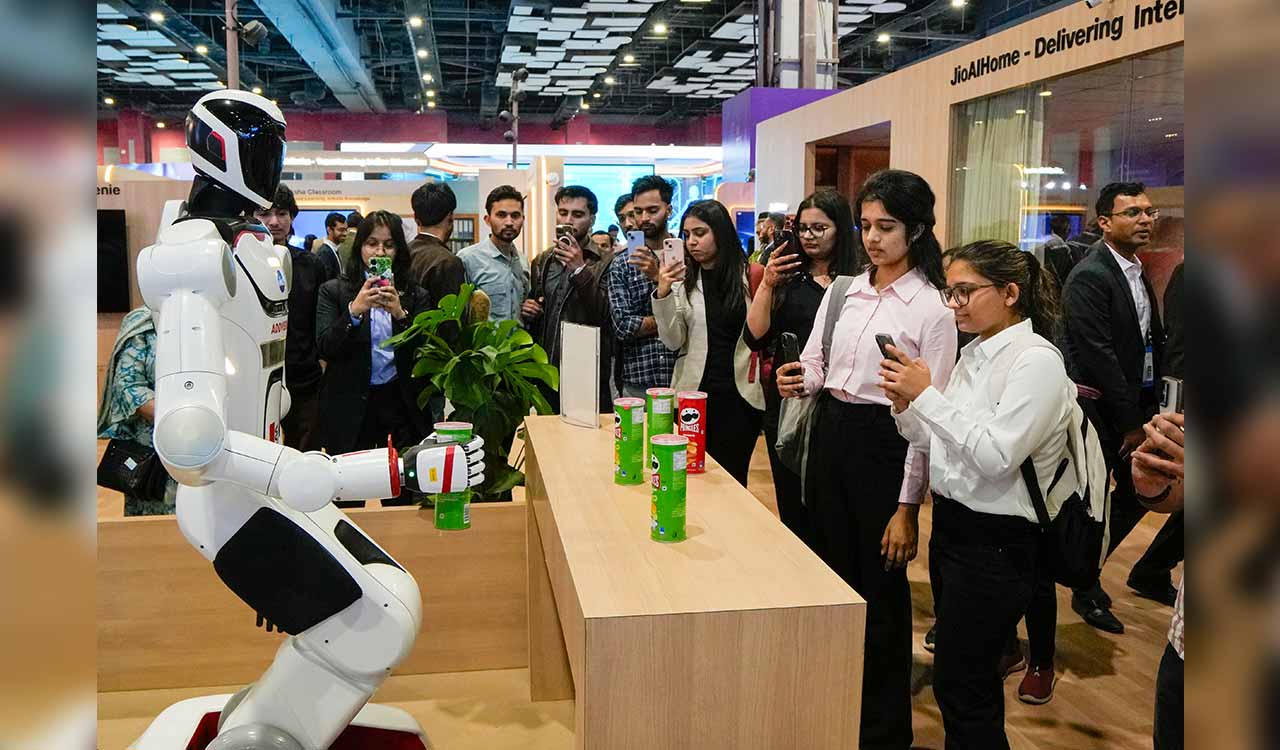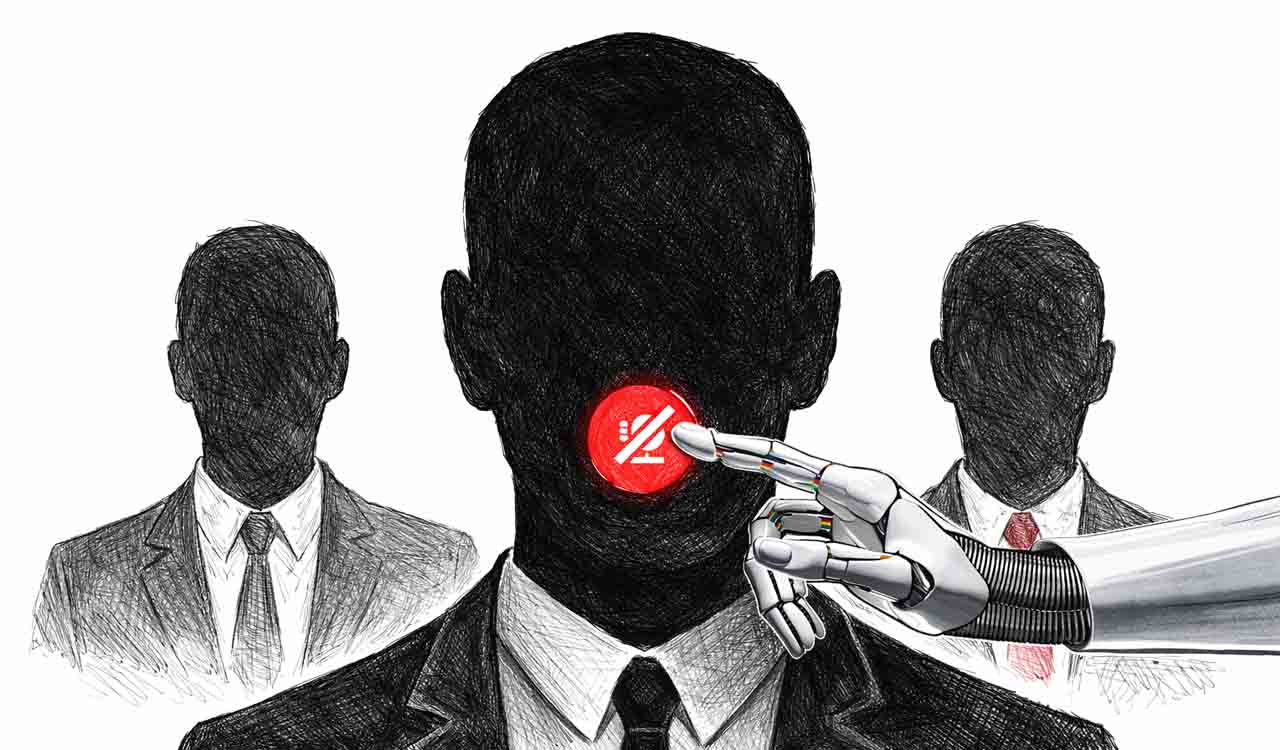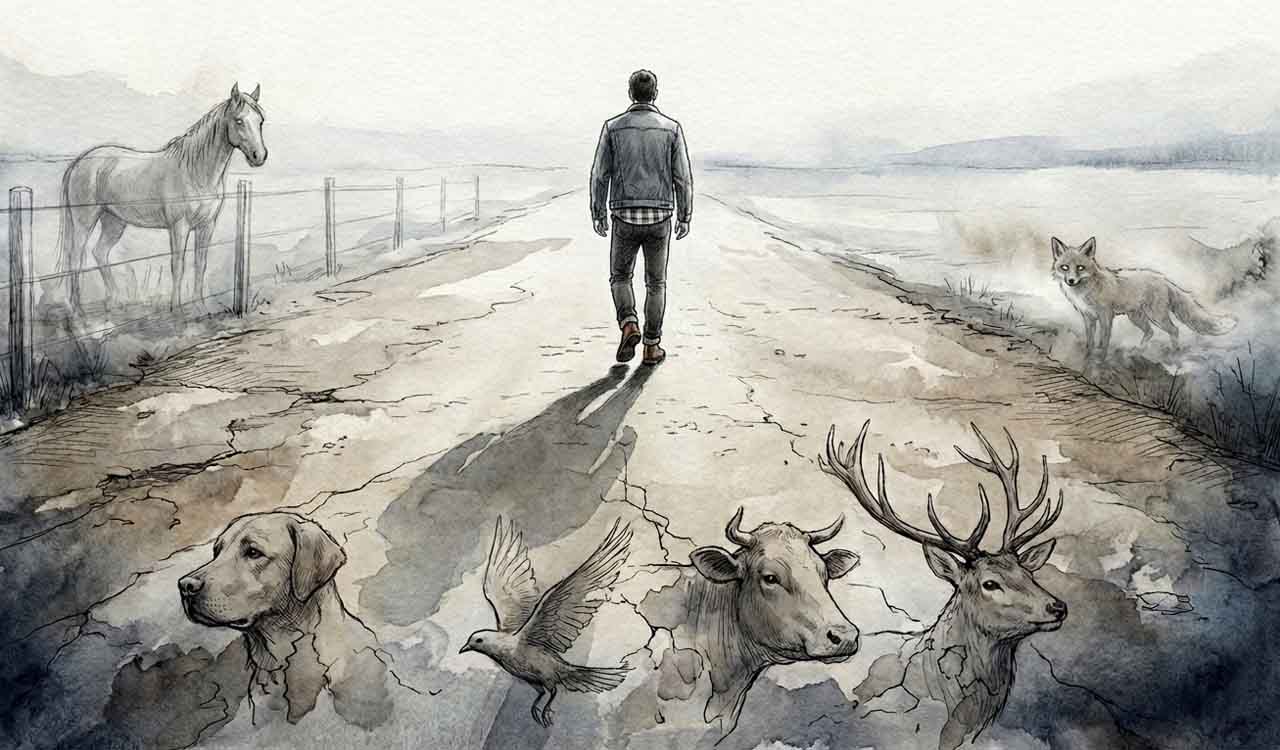Opinion: Smart or stupid for 2025?
Our so-called progress often resembles taking one step forward in one area, only to stumble two steps back in another

By B Maria Kumar
“If we are so smart, why are we so stupid?” This striking remark by Israeli historian Yuval Noah Harari has gained the attention of millions worldwide, sparking diverse reactions and reflections on the state of contemporary human intellect. My brief exploration into this question led me to realise that Harari is not the first great mind to express such a sentiment. Similar notions have been echoed by intellectuals and geniuses across history. For instance, there’s a popular saying that, ‘scientists should stop analysing animal intelligence and start studying human stupidity.’ This perspective is often (though not definitively) attributed to Argentinian Nobel laureate César Milstein.
Also Read
Existential Questions
In the same manner, Albert Einstein once humorously quipped, “Two things are infinite: the universe and human stupidity; and I’m not sure about the universe.” Einstein’s words remind us to be mindful of our own fallibility when attempting to understand and master the unknowns of the cosmos. Harari’s statement reflects this lineage of thought. Like Milstein and Einstein, he underscores the importance of questioning, rethinking and facing our ignorance, even as we invent, discover, and innovate.
A few days ago, I watched an intriguing interview in which journalist Andrew Ross Sorkin spoke with Harari. In this conversation, Harari raised numerous existential questions about the trajectory of technological advancements — are they for the good or the detriment of humanity? His most emphatic observation was a haunting one: how can humans, capable of showcasing amazing scientific and technological achievements, also exhibit such profound stupidity that they risk self-destruction?
Harari’s latest book, Nexus: A Brief History of Information Networks from the Stone Age to AI, released in September 2024, delves into the hidden dynamics of information networks, which are truthful and deceptive, that form the foundations of artificial intelligence (AI) systems. He warns that these networks can lead to unpredictable and potentially catastrophic consequences, including scenarios like an AI-driven apocalypse or atomic warfare. Such concerns are particularly relevant amid the escalating nuclear rhetoric between parties embroiled in the ongoing international conflicts.
AI-facilitated dangers
Beyond violent military strife, Harari also highlights the implied life or death perils posed by AI-facilitated dangers. We may point out many such as engineered pandemics, biochemical weaponry, uncertainties in gene editing and even chaotic societal imbroglios that are exacerbated by easily accessible datasets whose accuracy we cannot always trust. These risks loom over humanity like the Sword of Damocles, threatening basic survival with their exponentially destructive potential. Harari’s critique of human intellect is perhaps harsher than that of Isaac Asimov, who earlier challenged humanity’s wisdom in celebrating its scientific and technological triumphs.
Righteous information guides humanity on the right path and constructive data cultivates a healthier human ego
In unequivocal terms, Harari’s cautionary message serves as a wake-up call, urging us to broaden our horizons and prioritise safety and sustainability over narrow, short-sighted pursuits. These concerns strike even more urgently in light of newly issued warnings from Geoffrey Hinton, popularly known as the ‘Godfather of AI’, who estimated that the chances of AI becoming apocalyptic have further increased. Harari’s apprehensions also demand swift action to eliminate these hazards before humanity is forced to confront their devastating outcomes.
Harari, in addition, shared insights on human shortcomings, which are evident in various human actions in our recent history. Our so-called progress often resembles taking one step forward in one area, only to stumble two steps back in another. While we’ve extended human lifespans, we’ve simultaneously, as Harari suggests, crafted a menu of self-destructive choices. Improved nutrition has bolstered health, yet the rampant use of toxic chemicals and processed foods has left us vulnerable to life-threatening diseases. Economic prosperity showcases human endeavour, but the worsening degradation of our environment; manifested in climate change, pollution, global warming and so on — stands as a glaring, probably irreversible, human error. Our pride in rapidly enhancing interpersonal connectivity through lightning-fast networks and the internet is dwarfed by the erosion of harmonious human interactions, fuelled by the reckless spread of misinformation and disinformation.
Humanity’s Future
Such paradoxes abound, emphasising alarming trends that necessitate immediate solutions. The direction of humanity’s future is increasingly intertwined with the rise of artificial intelligence, now permeating nearly every facet of our lives. Harari urges a critical reassessment of the unchecked proliferation of AI. He compellingly argues that information is the ultimate determinant of reality. When disinformation and misinformation dominate our networks, AI systems, driven by their underlying algorithms and datasets, inevitably exhibit biases.
He illustrates how good individuals can be led astray when fed false information, suggesting that morals and ethics are profoundly influenced by the quality of information available to humanity. For instance, if ego plays a pivotal role in decisions to wage or cease wars, it’s disconcerting to realise that such egoistic attitudes are shaped by the information one consumes. One-sided or distorted information fosters self-centred thinking. The Dunning-Kruger effect asserts that individuals with inflated egos often misjudge their competence, leading to poor decisions. When egocentric leaders pursue wars without regard for human life, what becomes of their conscience?
If people continue to pollute the environment irresponsibly in the name of economic growth, do they not hear their conscience warning about the air we all breathe? The most distressing realisation is that the human conscience too mirrors the information absorbed throughout life. Ultimately, it all —whether ego, conscience, or AI — converges on a single truth: information. Righteous information guides humanity on the right path. Constructive data cultivates a healthier human ego. Meaningful and more inclusive experiences, stories and narratives lead to a more balanced and empathetic conscience. Datasets attuned to peaceful coexistence, environmental security, betterment of humanity etc pave the way for safe AI. This represents the essence of true human wisdom, serving as a guiding principle for 2025 and the years ahead.

(The author, IPS (Retd), is a winner of National Rajbhasha Gaurav Award for the year 2022-23)
Related News
-
Modi, Macron vow deeper defence, trade partnership
3 hours ago -
Sports briefs: Dharani, Tapasya clinch honours
3 hours ago -
Man arrested for cultivating ganja plants in Telangana’s Adilabad
3 hours ago -
Second successive win for Titans in Samuel Vasanth Kumar basketball
3 hours ago -
Women councillors allege misconduct by Congress in Kyathanpalli
3 hours ago -
Gauhati Medical College doctor lodges FIR alleging harassment by principal
3 hours ago -
Two FIRs filed in Chikkamagaluru after week-long stone pelting on house
3 hours ago -
Viral video shows SUV hitting biker in Dwarka, teenage driver detained
3 hours ago




